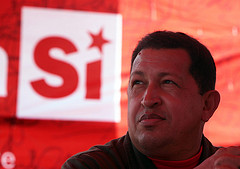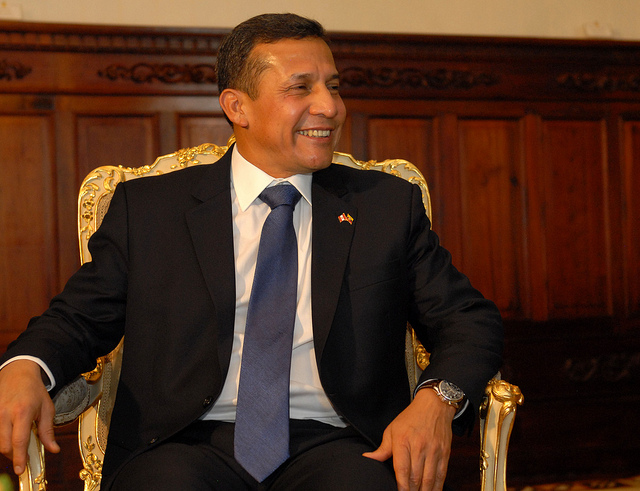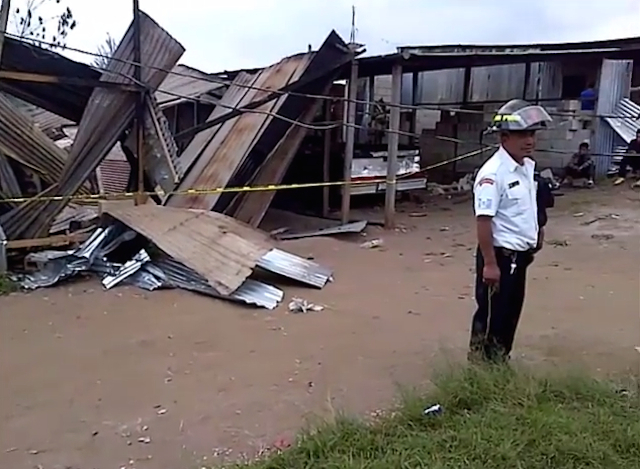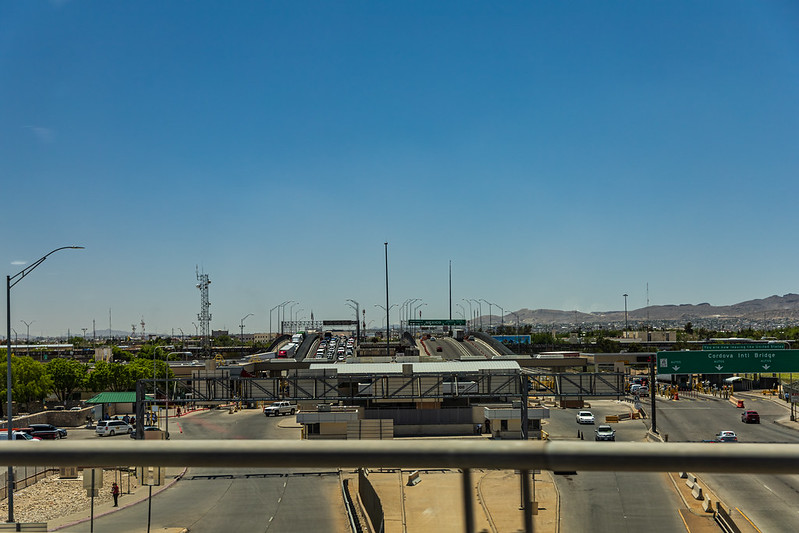
Latin America: Week in Review, Venezuela
Hugo Chávez Says Associates Had Ties To Colombian Rebels
May 2, 2011 By Staff
Today in Latin America
Top Story — Venezuelan President Hugo Chávez said Sunday some politicians associated with him have maintained ties with Colombian leftist guerrillas, though he did not name anyone specifically.
Speaking at a May Day rally, Chávez said some radical politicians who support his government met with Colombian rebels in order to help them establish bases in Venezuelan territory. Chávez said he asked the unnamed politicians to desist, saying it would provoke the United States.
“They don’t realize it’s the perfect excuse for imperialism to attack the people of Venezuela,” he said.
Chávez’s comments are the latest development in the story of diffusing tensions between Chávez’s government and that of neighboring Colombia.
Former Colombian President Álvaro Uribe accused Chávez several times of harboring FARC rebels, based partly on evidence Uribe said the Colombian government recovered from a FARC computer. Chávez denied the allegations and disputed the authenticity of the evidence.
The conflict grew to such a point that the countries recalled their ambassadors in 2009 and Venezuela began substituting imports from Colombia.
Uribe’s successor Juan Manuel Santos — who worked as Uribe’s defense minister — has smoothed out relations. The two met shortly after Santos took office to reestablish diplomatic relations.
Santos also said last month that Chávez had made good on his promise not to harbor rebels on Venezuelan territory — a comment that prompted Uribe to renew his allegations against Chávez in the Colombian press and on Twitter.
“Terrorist hideout: where are the narco Farc leaders: Ivan Marquez, Romaña, Grannobles, Tomochenko…..?” Uribe said in one of a series of tweets on April 12.
Last week, Chávez extradited an alleged collaborator with the FARC, Joaquín Pérez Becerra, despite criticism from Venezuela’s far left. Pérez Becerra, a Swedish citizen, is the editor of Anncol.
Just Published at the Latin America News Dispatch
- It’s not easy preserving Peru’s historic sites, which get picked at by looters and face the looming threat of mass tourism. Latin America News Dispatch contributor Matt Barker reports the story from Trujillo, Peru.
Headlines from the Western Hemisphere
North America
- At least 15 people were killed this weekend in separate attacks in the Mexican resort city of Acapulco.
- Mexican federal police discovered a basement arsenal in Ciudad Juárez that included three anti-aircraft guns, dozens of grenades, a grenade launcher, AK-47s and other high-powered weapons.
- New York City Mayor Michael Bloomberg said that a way to solve the immigration debate in the U.S. would be to make new immigrants move to Detroit.
Caribbean
- Hundreds of thousands of Cubans turned out for May Day parades in what was billed as a show of support for economic reforms.
- An influential U.S. senator urged the State Department Friday to look at the visa and residency status of Haitian officials who might have engaged in election fraud in Haiti’s legislative races.
Central America
- El Salvador’s supreme court disbanded two formerly powerful political parties because neither won the minimum level of votes in the 2004 presidential election.
- The Guatemalan government sent Mexico information on 34 migrants, who may be among a large group of victims found in recent weeks in mass graves in northeastern Mexico.
- A strong 6.0-magnitude earthquake rattled Panama early Saturday, US government seismologists reported.
Andes
- Addressing tens of thousands of workers at a May Day march Sunday, Venezuelan President Hugo Chávez set a goal to create more than 3 million jobs in eight years and end unemployment in the OPEC nation.
- Opposition from Bolivia’s independently organized miners stopped President Evo Morales from implementing plans to boost state control over the country’s mines Sunday.
Southern Cone
- Argentine writer Ernesto Sabato, who wrote three novels and presided over the nation’s Commission on the Disappeared (CONADEP), died on Saturday at the age of 99.
- Deep-sea search robots recovered the first of two black boxes from the Air France flight that crashed in 2009 off the coast of Brazil, killing 228.
- Brazilian President Dilma Rousseff was diagnosed with a mild case of pneumonia over the weekend but will return to work on Monday.
- Residents of Valparaiso, Chile, say that their city’s UNESCO World Heritage status has not helped solve infrastructure and transportation problems, including the mostly-inoperative cable car system.
Image: Que Comunismo! @ Flickr.






